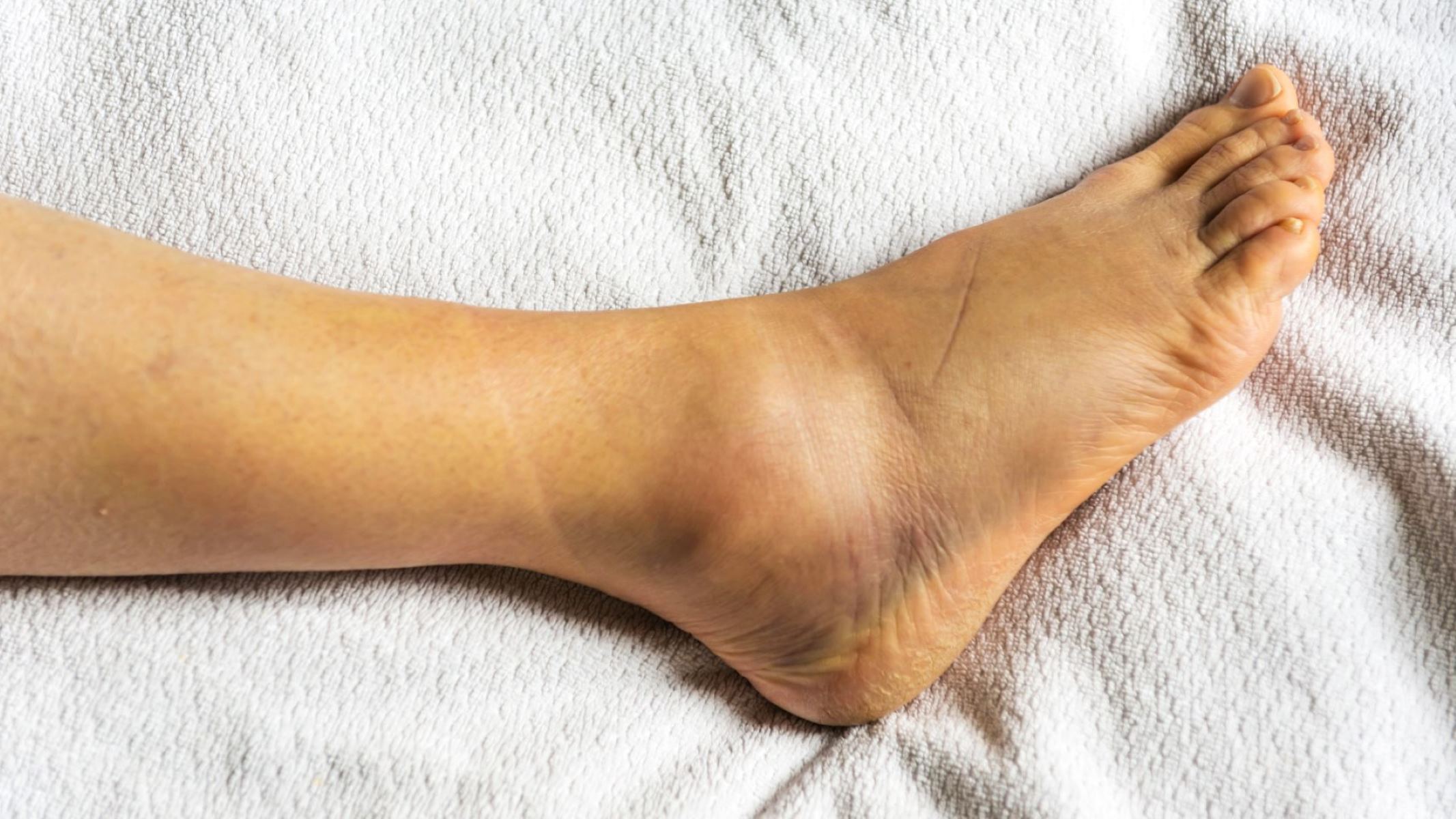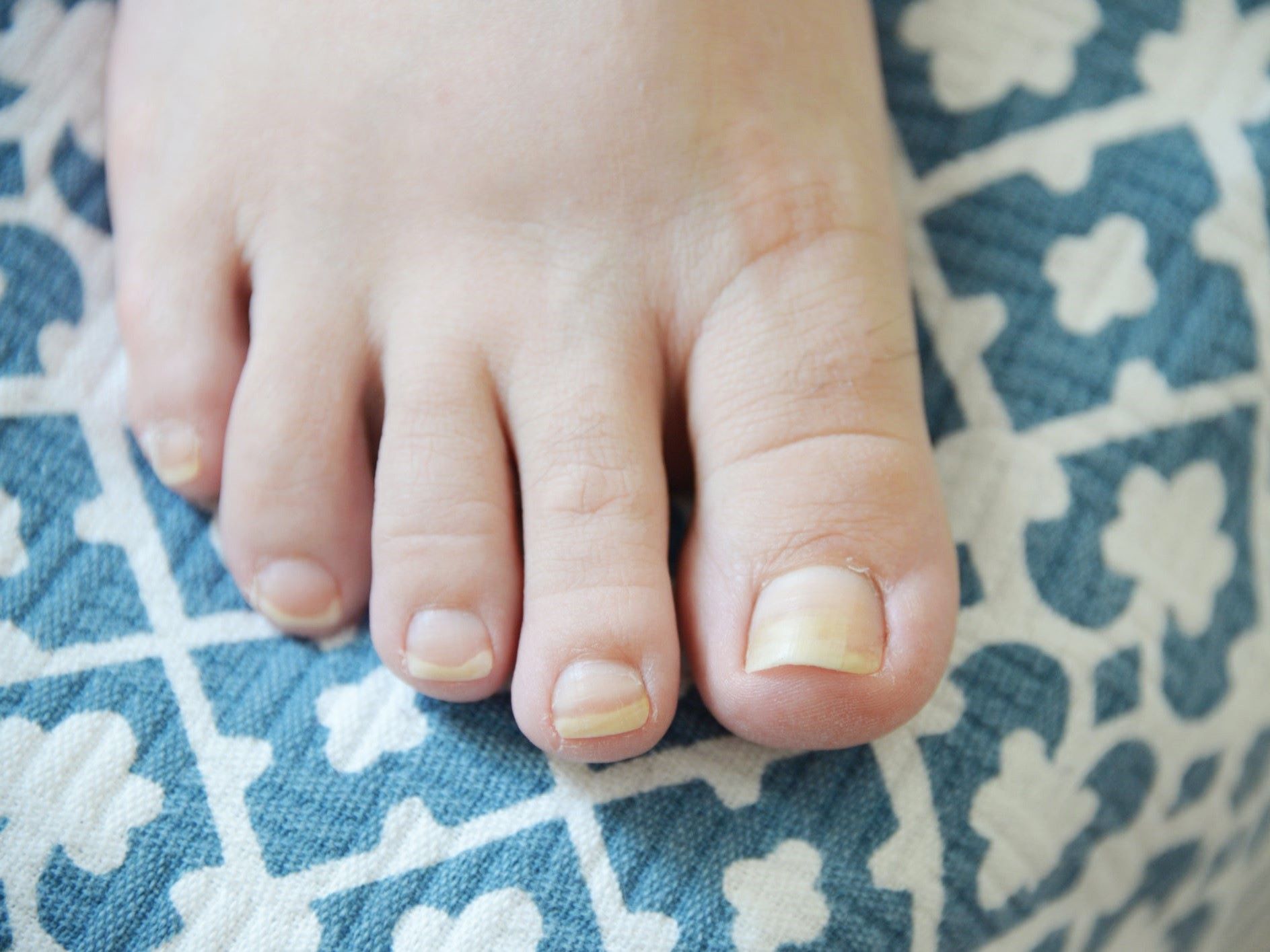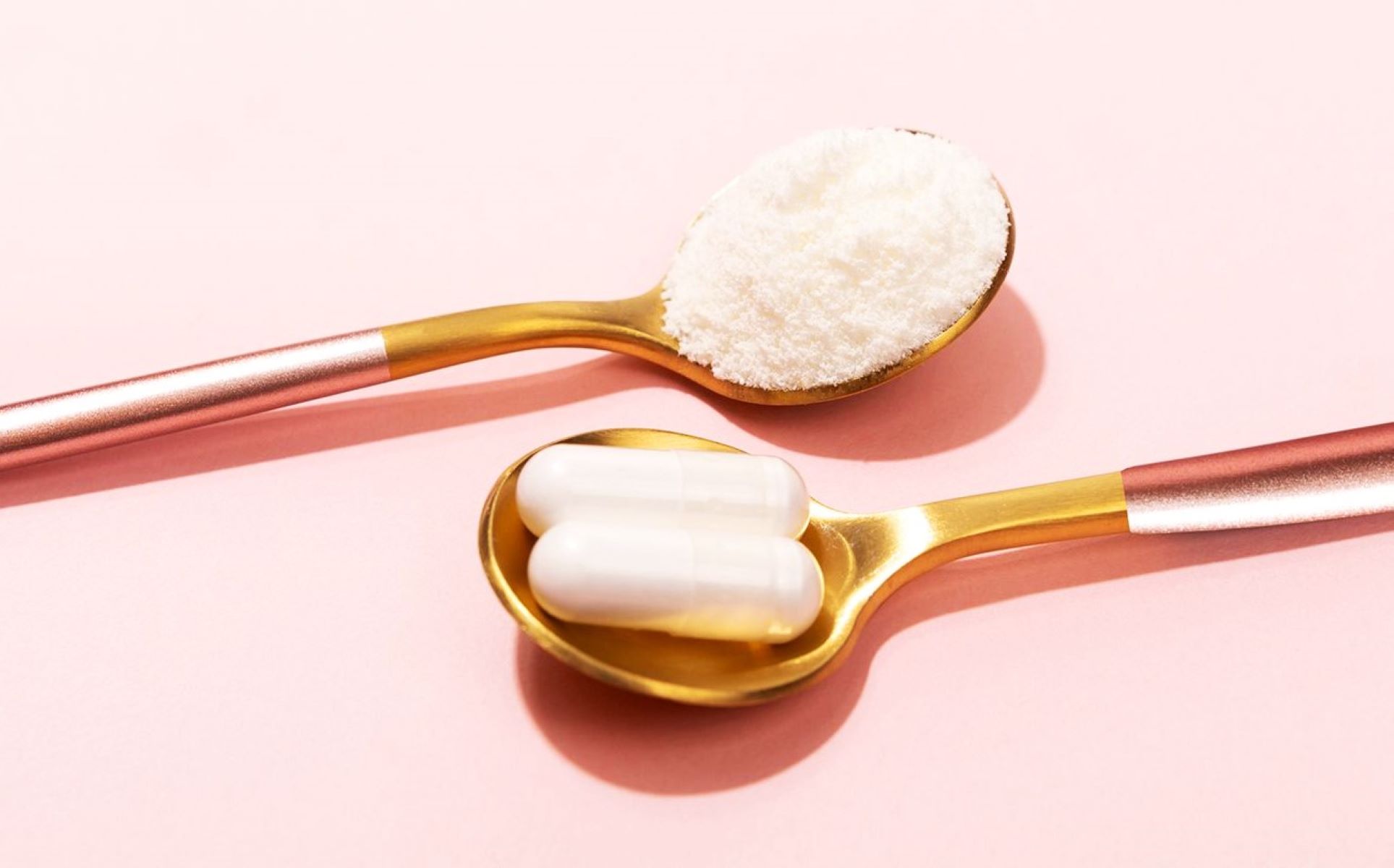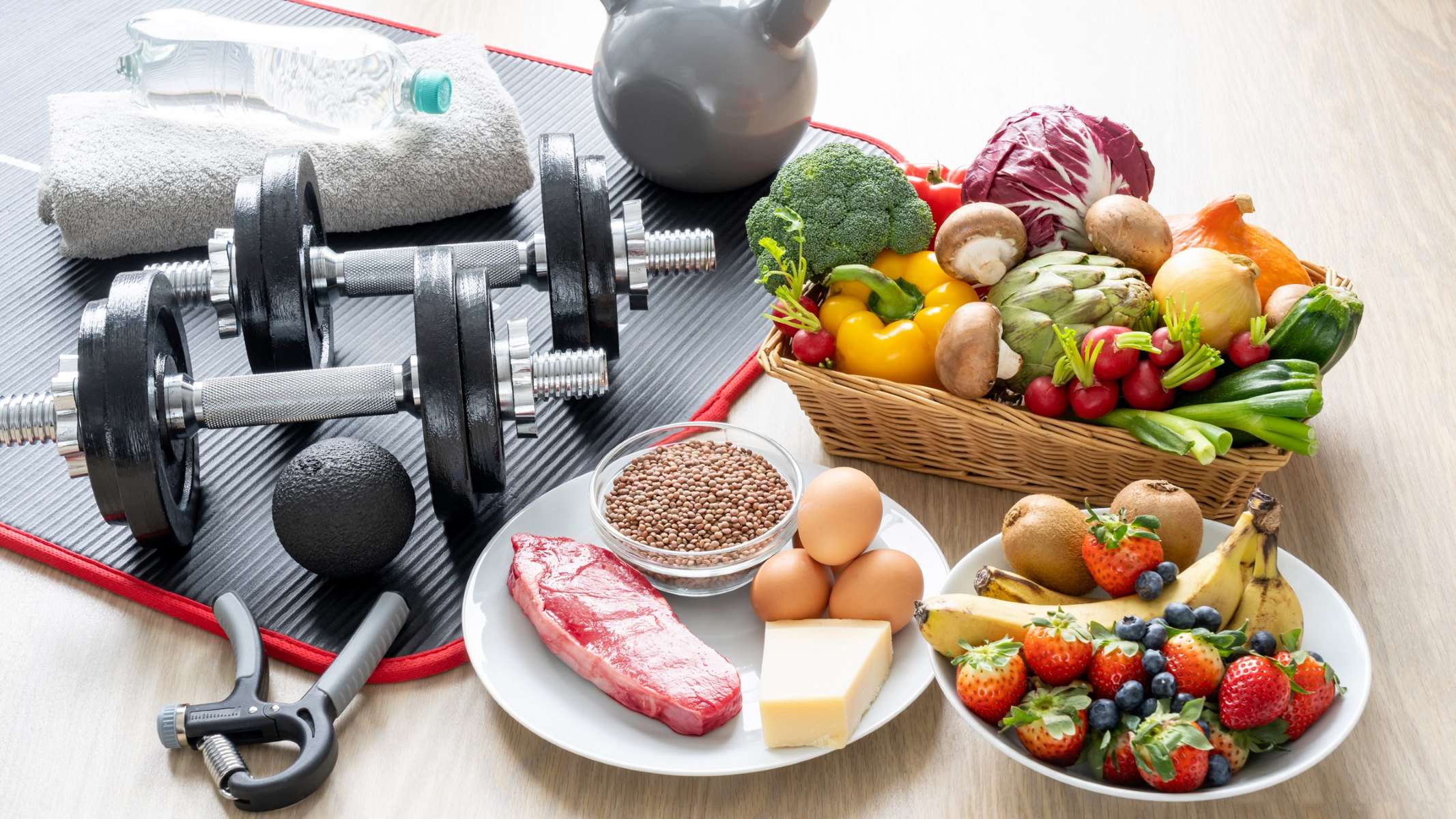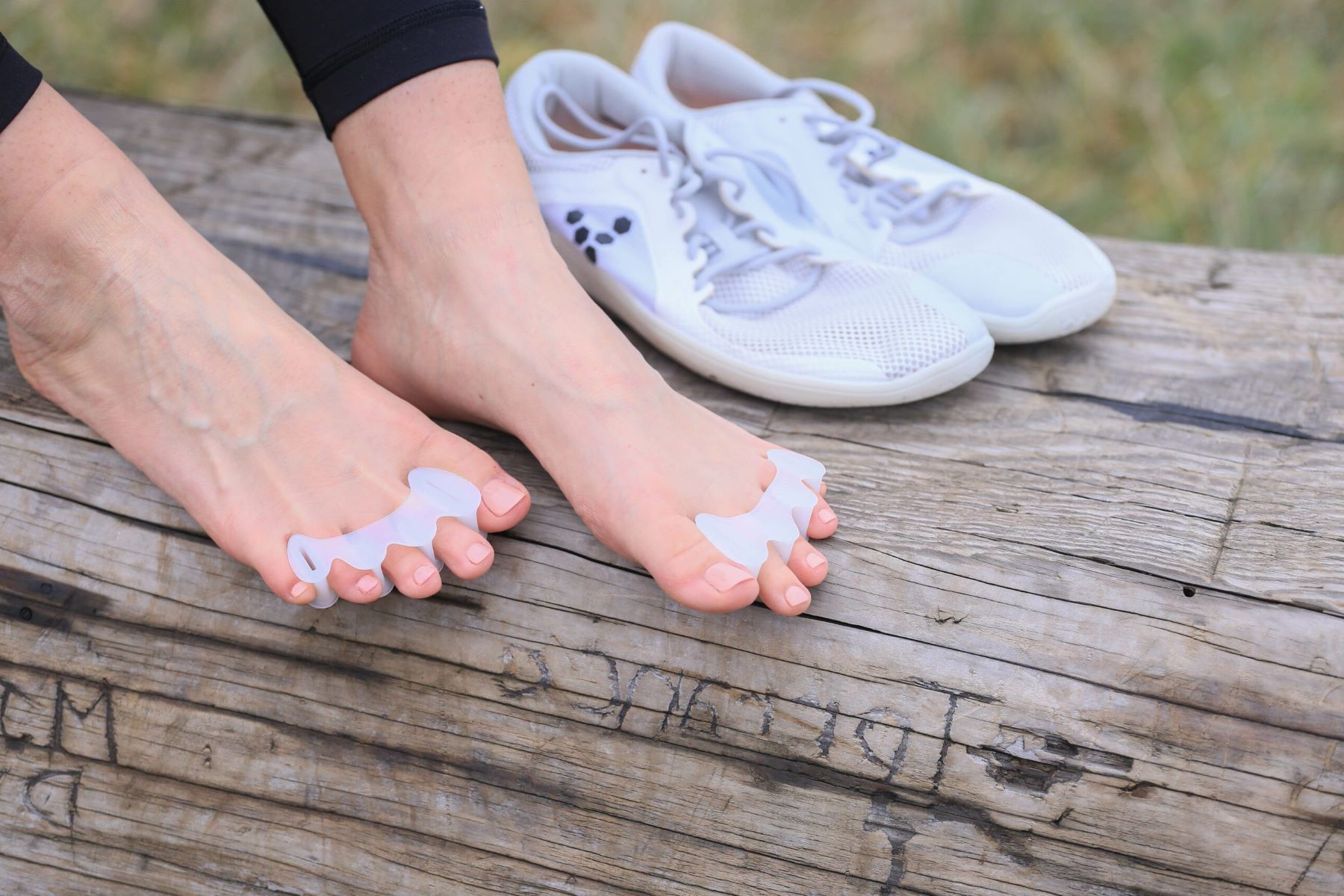Home>Health & Nutrition>How Can My Diet Help Prevent Dry, Itchy Skin While Running?


Health & Nutrition
How Can My Diet Help Prevent Dry, Itchy Skin While Running?
Published: February 22, 2024
Discover how a balanced diet can alleviate dry, itchy skin during running. Explore the link between health, nutrition, and skin care.
(Many of the links in this article redirect to a specific reviewed product. Your purchase of these products through affiliate links helps to generate commission for Therunningadvisor.com, at no extra cost. Learn more)
Table of Contents
Importance of Proper Nutrition for Skin Health
Proper nutrition plays a pivotal role in maintaining healthy, vibrant skin, especially for individuals engaged in running or other physical activities. The skin, being the body's largest organ, requires essential nutrients to support its structure and function. When it comes to running, the skin is subjected to increased stress due to exposure to the elements, such as wind, sun, and sweat. Therefore, ensuring that the body receives the necessary nutrients is crucial for preventing dry, itchy skin and promoting overall skin health.
A well-balanced diet provides the body with the building blocks it needs to maintain skin integrity and hydration. Essential nutrients, including vitamins, minerals, and antioxidants, contribute to the skin's ability to withstand external stressors and repair itself. For runners, whose skin is regularly exposed to environmental factors, proper nutrition becomes even more critical in maintaining skin health.
Moreover, certain nutrients possess anti-inflammatory properties, which can help alleviate skin irritation and redness that may occur during or after running. By incorporating these nutrients into their diet, runners can support their skin's resilience and reduce the risk of developing dry, itchy skin.
In essence, proper nutrition acts as a cornerstone for skin health, providing the body with the tools it needs to maintain skin elasticity, repair damage, and combat dryness. By understanding the significance of nutrition in skin health, runners can make informed dietary choices to support their skin's well-being and enhance their overall running experience.
Read more: How Can My Diet Help Alleviate PMS Symptoms?
Key Nutrients for Preventing Dry, Itchy Skin
-
Omega-3 Fatty Acids: These essential fats play a crucial role in maintaining skin health by supporting its natural oil barrier. Found in fatty fish such as salmon, mackerel, and sardines, as well as flaxseeds and walnuts, omega-3 fatty acids help prevent moisture loss from the skin, reducing the risk of dryness and itchiness.
-
Vitamin E: As a powerful antioxidant, vitamin E protects the skin from oxidative stress caused by free radicals. It also supports skin hydration and aids in the repair of damaged skin cells. Nuts, seeds, and vegetable oils are excellent sources of vitamin E.
-
Vitamin C: This vitamin is essential for collagen synthesis, which is vital for maintaining skin elasticity and preventing dryness. Additionally, vitamin C possesses antioxidant properties that help combat skin inflammation. Citrus fruits, strawberries, kiwi, and bell peppers are rich sources of vitamin C.
-
Zinc: Known for its role in skin healing and regeneration, zinc supports the maintenance of healthy skin by aiding in the repair of tissues and the synthesis of collagen. It also possesses anti-inflammatory properties, which can alleviate skin irritation. Foods such as oysters, beef, lentils, and pumpkin seeds are excellent sources of zinc.
-
Hydration: While not a nutrient, proper hydration is essential for skin health. Water plays a vital role in maintaining skin moisture and preventing dehydration, which can lead to dry, itchy skin. Runners should ensure they drink an adequate amount of water to support their skin's hydration.
By incorporating these key nutrients into their diet, runners can effectively support their skin health, reduce the risk of dry, itchy skin, and promote overall skin resilience.
Foods to Include in Your Diet for Healthy Skin
Incorporating skin-nourishing foods into your diet can significantly contribute to maintaining healthy and vibrant skin, especially for individuals engaged in running. Here are some nutrient-rich foods that can support skin health:
Fatty Fish
Fatty fish such as salmon, mackerel, and sardines are excellent sources of omega-3 fatty acids. These essential fats play a crucial role in maintaining the skin's natural oil barrier, preventing moisture loss and reducing the risk of dry, itchy skin. Additionally, the omega-3 fatty acids found in fish have anti-inflammatory properties, which can help alleviate skin irritation and redness.
Nuts and Seeds
Nuts and seeds, including almonds, sunflower seeds, and flaxseeds, are rich in vitamin E, an antioxidant that protects the skin from oxidative stress and supports skin hydration. Vitamin E also aids in the repair of damaged skin cells, promoting overall skin health and resilience.
Colorful Fruits and Vegetables
Colorful fruits and vegetables, such as oranges, strawberries, kiwi, and bell peppers, are abundant in vitamin C. This vitamin is essential for collagen synthesis, which helps maintain skin elasticity and prevents dryness. Additionally, the antioxidant properties of vitamin C contribute to combating skin inflammation, supporting overall skin health.
Whole Grains
Whole grains like brown rice, quinoa, and oats provide essential nutrients such as zinc and vitamin E, which are beneficial for skin health. Zinc aids in skin healing and regeneration, while vitamin E protects the skin from damage and helps maintain its moisture levels.
Legumes
Legumes, including lentils and chickpeas, are rich in zinc, a mineral known for its role in supporting skin repair and regeneration. Zinc also possesses anti-inflammatory properties, which can help alleviate skin irritation and promote overall skin well-being.
Water
Proper hydration is essential for maintaining skin moisture and preventing dehydration, which can lead to dry, itchy skin. Drinking an adequate amount of water throughout the day supports skin hydration and overall skin health.
By incorporating these nutrient-rich foods into your diet, you can effectively support your skin health, reduce the risk of dry, itchy skin, and promote overall skin resilience, especially during running and other physical activities.
Foods to Avoid for Maintaining Skin Hydration
Maintaining skin hydration is crucial for preventing dry, itchy skin, especially for individuals engaged in running. While incorporating hydrating foods into your diet is essential, it's equally important to be mindful of foods that can potentially contribute to skin dehydration. Certain dietary choices can have a dehydrating effect on the skin, leading to a loss of moisture and potential skin issues. By being aware of these foods and their impact on skin hydration, runners can make informed decisions to support their skin health.
High-Sodium Foods
Foods high in sodium can contribute to dehydration, as excess sodium prompts the body to retain water, leading to reduced skin hydration. Processed and packaged foods, such as chips, canned soups, and processed meats, often contain high levels of sodium. Consuming these foods regularly can disrupt the body's natural fluid balance, potentially leading to skin dryness and discomfort during running.
Sugary and Caffeinated Beverages
Sugary and caffeinated beverages, including soda, energy drinks, and sweetened coffee or tea, can have a dehydrating effect on the body. These beverages can lead to increased urine output, potentially causing dehydration and impacting skin moisture levels. Runners should be cautious when consuming these beverages, especially before or after a run, to maintain optimal skin hydration.
Alcohol
Alcohol consumption can negatively impact skin hydration, as it acts as a diuretic, promoting increased urine production and potentially leading to dehydration. Prolonged or excessive alcohol intake can compromise the skin's moisture levels, contributing to dryness and discomfort, particularly for individuals engaged in physical activities like running.
Spicy and Salty Foods
Spicy foods and those high in salt can contribute to dehydration and may exacerbate skin dryness, especially when consumed in excess. Spicy dishes and high-sodium meals can prompt the body to expel water, potentially impacting skin hydration. Runners should be mindful of their intake of these foods, especially when aiming to maintain optimal skin moisture levels.
By being mindful of these foods and their potential impact on skin hydration, runners can make informed dietary choices to support their skin health. While it's not necessary to completely eliminate these foods, moderation and balance are key. Incorporating hydrating foods and being mindful of potential dehydrating culprits can help runners maintain healthy, well-hydrated skin, supporting their overall running experience.
Hydration and Its Impact on Skin Health
Proper hydration is fundamental for maintaining optimal skin health, particularly for individuals engaged in running and other physical activities. The skin, being the body's outermost protective barrier, relies on adequate hydration to preserve its elasticity, resilience, and overall health. When the body is well-hydrated, the skin is better equipped to withstand external stressors and maintain its natural moisture balance, reducing the risk of dry, itchy skin and other potential issues.
Water plays a pivotal role in supporting skin hydration, as it facilitates various essential functions within the body, including regulating body temperature, transporting nutrients to the skin cells, and eliminating waste products. For runners, who often experience increased sweat loss during exercise, maintaining proper hydration is crucial for replenishing lost fluids and supporting skin moisture levels.
Dehydration, on the other hand, can significantly impact skin health. When the body lacks adequate water, the skin may become dry, tight, and more prone to irritation. Dehydrated skin is less resilient and may exhibit signs of dullness, flakiness, and increased sensitivity. For runners, dehydration can exacerbate the effects of environmental stressors, such as sun exposure and wind, leading to discomfort and potential skin damage.
In addition to water, certain hydrating foods can contribute to overall skin hydration. Fruits and vegetables with high water content, such as cucumbers, watermelon, and oranges, can provide an extra boost of hydration to the body, benefiting the skin's moisture levels. Including these hydrating foods in the diet can complement the effects of proper hydration, further supporting skin health for runners and individuals with active lifestyles.
Furthermore, maintaining optimal skin hydration can aid in the post-run recovery process. Hydrated skin is better equipped to repair and regenerate itself, potentially reducing the recovery time for any exercise-induced skin irritation or damage. By prioritizing hydration, runners can support their skin's ability to bounce back from the stresses of physical activity, promoting overall skin resilience and comfort.
In essence, proper hydration is a cornerstone of skin health, particularly for individuals engaged in running. By ensuring adequate water intake and incorporating hydrating foods into their diet, runners can support their skin's moisture balance, reduce the risk of dry, itchy skin, and promote overall skin health and resilience during their running endeavors.
Sample Meal Plan for Runners to Support Skin Health
Creating a well-rounded meal plan is essential for runners looking to support their skin health through nutrition. By incorporating a variety of nutrient-dense foods, runners can ensure that their bodies receive the essential vitamins, minerals, and antioxidants needed to maintain healthy, vibrant skin. Here's a sample meal plan designed to provide runners with the necessary nutrients to support skin health:
Breakfast
- Salmon and Avocado Toast: Start the day with a serving of omega-3-rich salmon paired with creamy avocado on whole-grain toast. This breakfast provides a healthy dose of essential fatty acids and vitamin E, supporting skin hydration and resilience.
Read more: How The Paleo Diet Can Benefit Runners
Mid-Morning Snack
- Greek Yogurt with Berries: Enjoy a serving of Greek yogurt topped with antioxidant-rich berries such as blueberries or strawberries. Greek yogurt is a good source of protein, while berries provide vitamin C, contributing to collagen synthesis and skin protection.
Lunch
- Quinoa Salad with Mixed Vegetables: Prepare a colorful quinoa salad loaded with a variety of mixed vegetables, such as bell peppers, spinach, and cherry tomatoes. The combination of quinoa and vegetables offers a mix of essential nutrients, including zinc, vitamin E, and hydration-promoting water content.
Afternoon Snack
- Mixed Nuts and Seeds: Snack on a handful of mixed nuts and seeds, such as almonds, walnuts, and pumpkin seeds. These nutrient-dense snacks provide a good source of omega-3 fatty acids, vitamin E, and zinc, supporting skin health and repair.
Dinner
- Grilled Chicken with Steamed Broccoli and Brown Rice: Enjoy a balanced dinner featuring grilled chicken, steamed broccoli, and fiber-rich brown rice. The lean protein from chicken, along with the vitamin C-rich broccoli and whole grains, contributes to skin repair and overall skin health.
Evening Snack
- Sliced Cucumber with Hummus: End the day with a refreshing snack of sliced cucumber paired with hummus. Cucumbers provide hydration, while hummus offers a source of protein and healthy fats, supporting skin resilience and moisture balance.
By following this sample meal plan, runners can ensure that their diet is rich in the key nutrients necessary for supporting skin health. Incorporating a variety of nutrient-dense foods throughout the day provides the body with the building blocks it needs to maintain skin integrity, hydration, and overall resilience, contributing to a more comfortable and enjoyable running experience.


